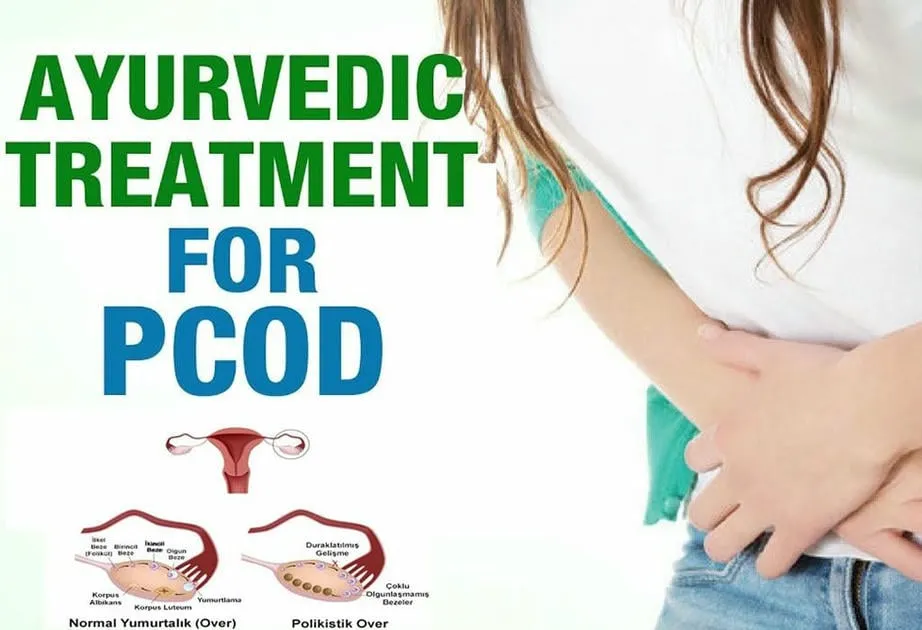
PCOD, or polycystic ovarian disease, is a medical condition in which the ovaries are found to be producing a large number of immature or partially developed eggs. With time, these immature eggs develop into cysts, whose end result is the enlargement of the ovaries and the secretion of male hormones in large amounts, causing hormonal changes in the body.
There is another condition of hormonal disorder in ovaries called PCOS, polycystic ovarian syndrome. It is a metabolic disorder that results in increased secretion of male hormones, causing irregular ovulation and other severe concerns. Both PCOD and PCOS are caused due to hormonal imbalances, but the distinguishing factor is that in PCOD, there is a high number of eggs in the ovaries, while in PCOS, the quantity of eggs in the ovaries is much lower.
The condition of PCOD/PCOS highly impacts women’s fertility and may cause trouble getting pregnant. Also, the risk of miscarriage or other pregnancy-related complications may arise. It becomes highly important to seek proper management of this condition to bypass the risks involved. You can seek a medical expert to provide the best Ayurvedic treatment of PCOD. Let’s see in detail the signs and symptoms, causes, complications, and treatment strategy for PCOD.
Several factors may cause the overproduction of immature eggs in the ovaries. Some of these may include:
Some women may start showing symptoms from their first menstruation only, while others may feel the symptoms arise once the condition gets severe. Some of the common symptoms may be:
There are chances that you are feeling these signs due to the condition of PCOD or PCOS, but to confirm it and start proper management of the condition, seek the aid of experts.
PCOD might be managed with the proper treatment strategy, such as the Ayurvedic treatment of PCOD; however, in the absence of suitable treatment, both PCOD and PCOS can lead to several other serious health complications, such as:
Ayurveda believes the imbalance in body energy (doshas) is the major factor contributing to the complications of PCOD. The excess buildup of toxins in the body starts interfering with the normal body mechanism and may result in irregular ovulations. With Ayurveda's approach of regulating lifestyle factors with the help of natural remedies and special treatment therapies, the complications related to PCOD can be easily managed.
Ayurveda endeavors to provide a holistic treatment by harmonizing the imbalance among the doshas and revitalizing the female reproductive system. To establish these goals of managing PCOD symptoms, Ayurveda propes certain dietary changes, herbal solutions, and treatment therapy. Let’s have a brief understanding of these solutions:
It is really important to seek the help of an Ayurvedic expert before commencing your Ayurvedic treatment of PCOD.
Karma Ayurveda helps in formulating the perfect Ayurvedic treatment of PCOD according to the individual conditions. With a team of specialized doctors with expertise in Ayurvedic solutions, our doctors carefully detect the complexities and provide a safe and effective method of treating the symptoms along with the underlying causes.
If you or someone in your family is looking for a natural solution to PCOD or PCOS, don’t hesitate to consult the experts at Karma Ayurveda! Contact us now!!
Q: Is the Ayurvedic treatment of PCOD effective?
Ans: Yes, the Ayurvedic treatment of PCOD has shown great results in individuals. You can consult an ayurvedic expert for the perfect treatment strategy.
Q: Is the Ayurvedic treatment for polycystic ovarian syndrome safe?
Ans: Yes, the Ayurvedic treatment for polycystic ovarian syndrome is considered safe due to the nature-based treatment strategy that uses herbal remedies, treatment therapies, and lifestyle changes. However, consulting an expert is recommended.
Q: Can the Ayurvedic treatment completely cure PCOD?
Ans: The Ayurvedic treatment method has the potential to manage the PCOD condition effectively. However, you should consult an expert before treatment.
Q: What is the reason for PCOD?
Ans: PCOD can be understood as a hormonal disorder that results in the overproduction of immature eggs in the ovaries, which become cysts over a period of time and start interfering with normal ovulation.
Q: Can lifestyle factors help with the condition of PCOD?
Ans: Yes, changing lifestyle factors that can help diminish the effects and complications of PCOD may be helpful. You can increase physical activities, improve your sleep cycle, and improve your mental conditions to manage PCOD.
Q: Can stress cause PCOD?
Ans: Yes, since PCOD is a hormonal disorder that may be stimulated by the stressful condition. You can seek help from an expert to assist you in managing the condition that can cause hormonal imbalances.
Q: How does Ayurveda cure PCOD and PCOS?
Ans: The Ayurvedic treatment of PCOD and PCOS includes utilizing natural herbs, treatment therapies, and dietary modifications. It will be suggested to consult an ayurvedic expert to help formulate the specific treatment method.
Q: What is the major difference between PCOD and PCOS disorders?
Ans: There are a number of similarities between them, including that both are hormonal disorders found in the female ovaries. The major difference can be that in PCOD, there is an excess release of immature or undeveloped eggs that form cysts, while in PCOS, there might be a decrease in egg production inside the ovaries. Both of these conditions can be managed with the help of a proper treatment strategy.
Q: How long does it take to see the results of Ayurvedic treatment of PCOD?
Ans: The duration will certainly vary from individual to individual. Some may start showing positive results within a couple of weeks, while others may take longer. Consult an Ayurvedic expert for suggestions on the best strategy to treat the symptoms and complications according to your needs.
Second Floor, 77, Block C, Tarun Enclave, Pitampura, New Delhi, Delhi, 110034